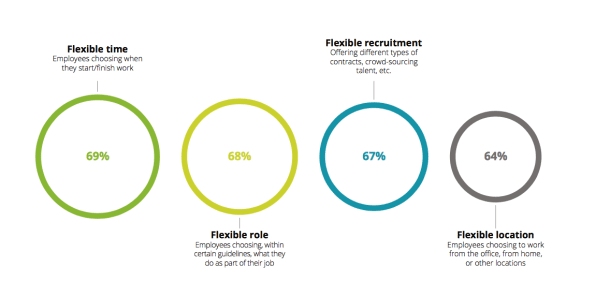“Can you believe some of the things that young man was saying?” was the question I overheard during a lunch conversation among a group of plumbing and heating business owners. “He’s going to tell me how to run my business?”
That guy was a millennial guest speaker—at a recent industry function—addressing the importance of Millennials in the workplace. “Instead of working 9 to 5, give us a flexible work schedule. If I can get my work done before 5 pm, let me hit the gym for my workout or let me come in later so I can finish my paddle ball tournament,” said the speaker talking on behalf of Millennials.
You should have heard the ghastly groans from those business owners having heard this. Change in corporate policy? No way!
What about a change in corporate culture, then? Instead of giving Millennials an end-of-the-year bonus, how about paying for their monthly Netflix or gym membership? How about donating to the employee’s charity of choice? Is it a matter of placating them? Maybe, to some extent. According to the Bureau of Labor Statistics, Millennials are now the largest generation in today’s workforce, and instead of an “us vs. them” mentality, employers need to recognize that worn work philosophies need to be sharpened, and employers should try to work with this younger generation to get the most out of them.
The Survey Says …
The 2017 Deloitte Millennial Survey conveys that within the workplace itself, flexible working continues to be a feature of most Millennials’ working lives and is linked to improved organizational performance, personal benefit and loyalty. This year, Deloitte also observed the solid foundation of trust that enables organizations to increasingly offer and operate flexible working arrangements.
Interestingly, the survey also states that it is in the workplace where Millennials feel most influential and, in turn, accountable. This is an important point for businesses to acknowledge as it offers a platform from which to build each employee’s sense of purpose and, ultimately, a more engaged workforce.

Globally, two-thirds of Millennials surveyed say their employers have adopted flexible arrangements. Source: The 2017 Deloitte Millennial Survey
Where workplace opportunities are offered, the Deloitte survey reports, Millennials are significantly more likely to say they can influence social equality, the environment, the behavior of big businesses, and even the overall directions of their countries. Regardless of whether Millennials, as individuals, can make a tangible difference on such large issue, the key point is that employers can provide a sense of empowerment and, hence, create a far more positive mindset.
I think this is where employers, and older coworkers, need to perhaps change the mindset of the corporate culture within their companies. A recent article in Forbes magazine says that Millennials are known for speaking their mind, so all we really need to do is listen to their ideas. Listening and being more engaged with the younger generation can only be beneficial to the company’s success.
In the world of net zero, younger voices, filled with enthusiasm and exuberance relating to environmental issues and sustainable building, should and need to be heard. Gone are the days of “well, they are wet behind the ears so what can they really offer?” The answer is, if I ventured a guess, would be more than you would think. Better communication and understanding of the younger generation is simply a necessity in today’s workplace.
The Deloitte survey reveals that employees, who feel their jobs have meaning, or that they are able to make a difference, exhibit greater levels of loyalty. My best answer in understanding Millennials and what motivates them to be more productive and ultimately stay with a company—average tenure at a company is two years—is not to paint with a broad brush but rather get to know them as individuals.




Join the conversation: